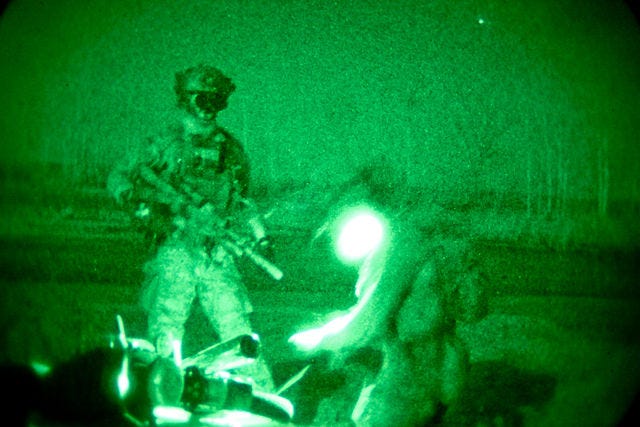The Haqqani Network, the Islamic State, and US Counter-Terrorism Policy
A Critical Moment

The Haqqani Network has long been one of the most lethal factions operating in Afghanistan and the broader region. Responsible for orchestrating hundreds of high-casualty attacks—including suicide bombings against Afghan, U.S., and NATO forces—the group has been a central player in global terrorism over the past two decades. Since the fall of the Afghan Republic in August 2021, the network, led by Sirajuddin Haqqani, has continued its operations, raising concerns about its ongoing collaboration with the Islamic State Khorasan Province (ISKP).
Recent reports indicating that the U.S. government has removed the $10 million bounty on Sirajuddin Haqqani, who currently serves as the Taliban’s acting interior minister, have sparked intense debate. The decision raises several critical questions about counterterrorism policy, U.S. national security strategy, and the future of efforts to counter the Haqqani Network and ISKP.
Understanding the Purpose of Bounties

Bounties on high-value targets serve a strategic purpose: they encourage intelligence gathering and operational action when direct access to a target is limited. The value of a bounty is determined by the threat level posed by the individual, the difficulty in locating them, and the broader national security implications of their capture or neutralization. The removal of a bounty typically signals one of three possibilities:
Improved Access to the Target – If a government gains reliable intelligence or establishes direct channels to a target, a bounty may no longer be necessary.
Policy Shifts or Diplomatic Considerations – Changes in foreign policy, negotiations, or backchannel discussions may lead to a reassessment of counterterrorism priorities.
Reassessment of Threat Perception – In certain instances, a target might be considered a lesser threat because of internal divisions, changing alliances, or various strategic factors.
While Haqqani remains on the FBI’s terrorist list, the removal of his bounty raises concerns about potential behind-the-scenes negotiations between the U.S. and the Taliban regime. Given Haqqani’s direct involvement in attacks that led to the deaths of thousands of Afghans and hundreds of U.S. and NATO personnel, any perception of leniency could harm U.S. credibility, particularly among those who sacrificed in the Global War on Terrorism (GWOT). This action is especially significant for Afghans. Following the chaotic U.S. withdrawal in 2021, many have struggled to regain trust in the U.S.’s commitment to counterterrorism. If Haqqani is being engaged diplomatically while ISKP’s influence continues to grow, it raises a crucial question: Is the U.S. changing its approach to counterterrorism in Afghanistan, and if so, at what cost?
The Growing Threat of ISKP and Haqqani Network Coordination
Since its emergence in 2014, ISKP has executed some of the deadliest attacks in Afghanistan and beyond. While the Taliban and ISKP have openly clashed, intelligence assessments indicate ongoing tactical coordination between ISKP and elements of the Haqqani Network. If this collaboration persists, the threat posed by ISKP will only grow, with potential consequences for both the region and Western nations. The ability of ISKP to carry out attacks globally is an increasing concern. Their operations in Afghanistan provide a launch pad to target regional adversaries and potentially strike Western interests. Considering the Haqqani Network’s history of facilitating external attacks, its continued role in supporting ISKP should not be underestimated.
The United States and its allies must stay vigilant in their counterterrorism efforts in Afghanistan. If the removal of Haqqani’s bounty indicates a deeper engagement with the Taliban regime, there must be clear transparency regarding the strategic goals behind this decision. Any perceived concessions to the Haqqani Network could undermine the counterterrorism framework that has been in place for decades.
Additionally, ISKP’s expanding operational capabilities require immediate attention. The world cannot afford to wait for another large-scale attack before acting. Countering ISKP and dismantling its network—potentially supported by Haqqani’s faction—must stay a top priority for U.S. national security.
The sacrifices made during the Global War on Terrorism must not be forgotten. Any policy shift that undermines the fight against terrorism could have far-reaching consequences for the security of the United States, its allies, and Afghanistan. Now is the time for clear, decisive action to ensure that threats from ISKP and the Haqqani Network are effectively neutralized before they strike again.
Best regards
LTG Haibatullah Alizai




